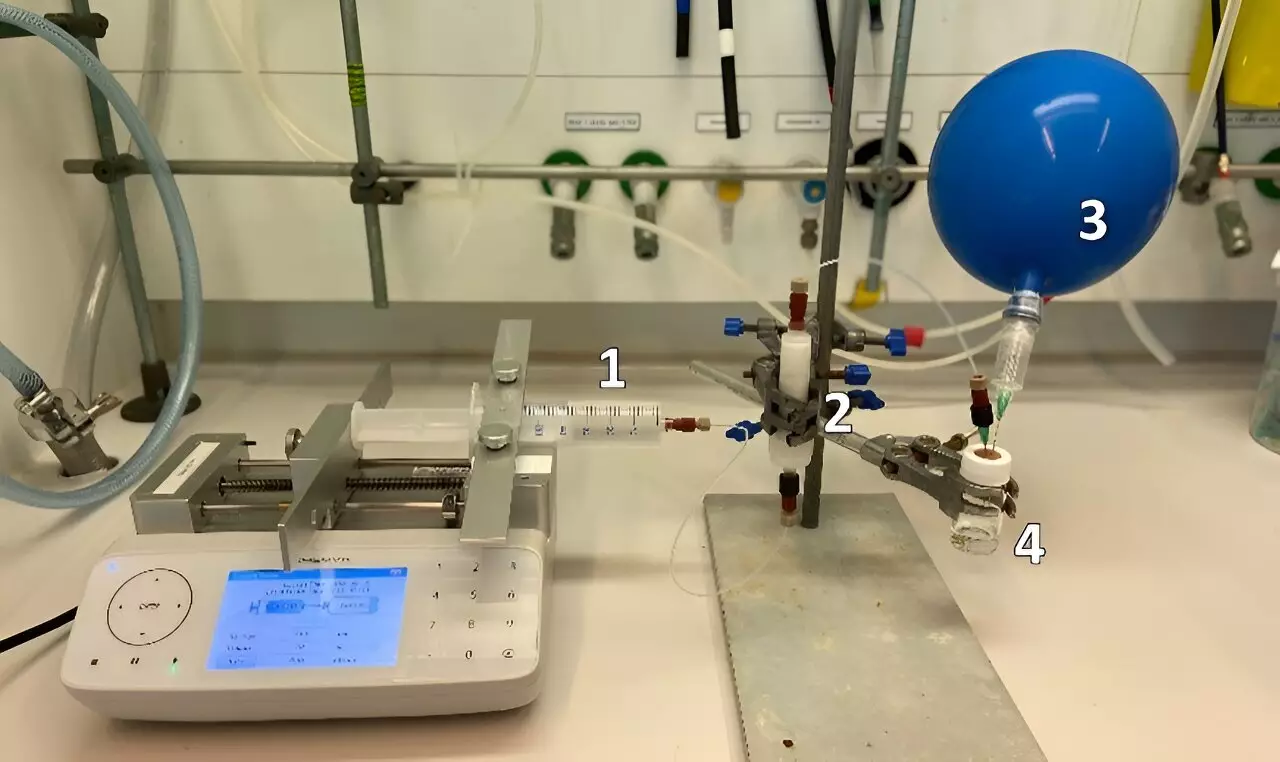Recent advancements in organic chemistry have allowed chemists at the University of Amsterdam to develop a new method for incorporating a trifluoromethyl group into molecules without the use of PFAS reagents. This breakthrough, published in Science, offers an environmentally friendly approach to synthesizing pharmaceutical and agrochemical compounds that require the presence of a trifluoromethyl group.
Led by Prof. Timothy Noël, the Flow Chemistry group at the Van ‘t Hoff Institute for Molecular Sciences collaborated with researchers from Italy, Spain, and the UK to create a straightforward and effective method for introducing trifluoromethyl groups. By utilizing the principles of flow chemistry, which involves closed systems of small tubes for reactions, they were able to achieve safe and controlled chemistry while enhancing versatility and flexibility.
The significance of this new synthesis method lies in its ability to avoid the use of PFAS compounds, which are facing future legislation due to environmental concerns. By only requiring cesium fluoride salt as the fluorine source, this protocol offers a PFAS-free alternative that aligns with the goals of sustainable chemistry. Companies like AstraZeneca have recognized the value of environmentally friendly synthesis routes and have expressed interest in this research.
The ability to attach the trifluoromethyl group to sulfur, nitrogen, or oxygen atoms opens up a world of possibilities for drug and agrochemical design. These fluorinated motifs can significantly impact the properties of molecules, including lipophilicity, oxidation resistance, and acid-base characteristics. By providing a method for generating reactive CF3 anions in a microfluidic flow reactor, this new approach enables the creation of unique and valuable compounds.
One of the key features of this innovative synthesis method is the integration of an anion generator module with a downstream reaction module. This system allows for the efficient transformation of CF3 anions into pharmaceutical and agrochemical active ingredients. The streamlined platform offers a safe and controlled environment for the derivatization of molecules, enhancing the production process and improving overall sustainability.
The implications of this research extend beyond the laboratory, with potential applications in both academic and industrial settings. By combining various anions with a range of substrates, the researchers have demonstrated the versatility and potential impact of this synthesis method. The operational parameters suggest that this approach is not only feasible but also promising for the development of new pharmaceutical drugs.
The sustainable synthesis of trifluoromethylated molecules represents a significant advancement in the field of organic chemistry. By addressing environmental concerns, improving safety, and enhancing the properties of pharmaceutical and agrochemical compounds, this research paves the way for a more sustainable and efficient future in chemical synthesis.



Leave a Reply